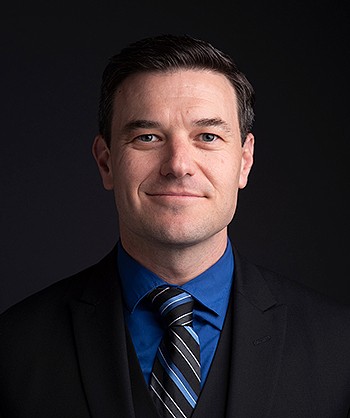

Associate Professor of the Practice

Email: david.goodman@bc.edu
Personality Theories: Behavior in Context
Advanced Clinical Case Consultation in Counseling Psychology
History of Psychology
Clinical discourse about psychopathology and trauma; Distribution of intervention models along the lines of economic class; Psychoanalytic Theory; Existential/ Phenomenological Psychology; Constructs of Self (formation and socio-political context); Ethics and morality; Theories of subjectivity (intersubjectivity); Critical psychology; Religious/Spiritual Discourse; Levinas studies
David Goodman is passionate about developing creative spaces for bringing together fields that seek to address human identity, suffering, and potential. Whether through conference building, interdisciplinary scholarship, curriculum development, or in his courses, Goodman commits himself to impacting the very language we employ while making sense of and responding to the Other.
As an Associate Professor of the Practice in the Lynch School’s Counseling, Developmental, and Educational Psychology department and Morrissey College's Philosophy department, Goodman consistently attempts to bridge worlds and invite dialogue. One example of this is the Center for Psychological Humanities and Ethics that Goodman directs, which generates engagement between clinicians, academics, and activists across various disciplines and practices. This is accomplished through conferences, events, a book series, and professional development offerings. Furthermore, Goodman remains highly active in research and has more than a dozen books and edited volumes to his name in the last 10 years.
Goodman is also Associate Dean for Strategic Initiatives and External Relations at the Lynch School. In this role, he oversees the development of new programs and coordinates outward facing activities including professional development offerings, several scholars’ programs, alumni relations, and community partnerships. Goodman has an abiding commitment to the Lynch School mission of enhancing the human condition, expanding human imagination, and developing more sustained means of deepening ethical responsibility at the individual, communal, and disciplinary levels.
Lastly, Goodman is an active clinician with a small private practice in Cambridge, MA.